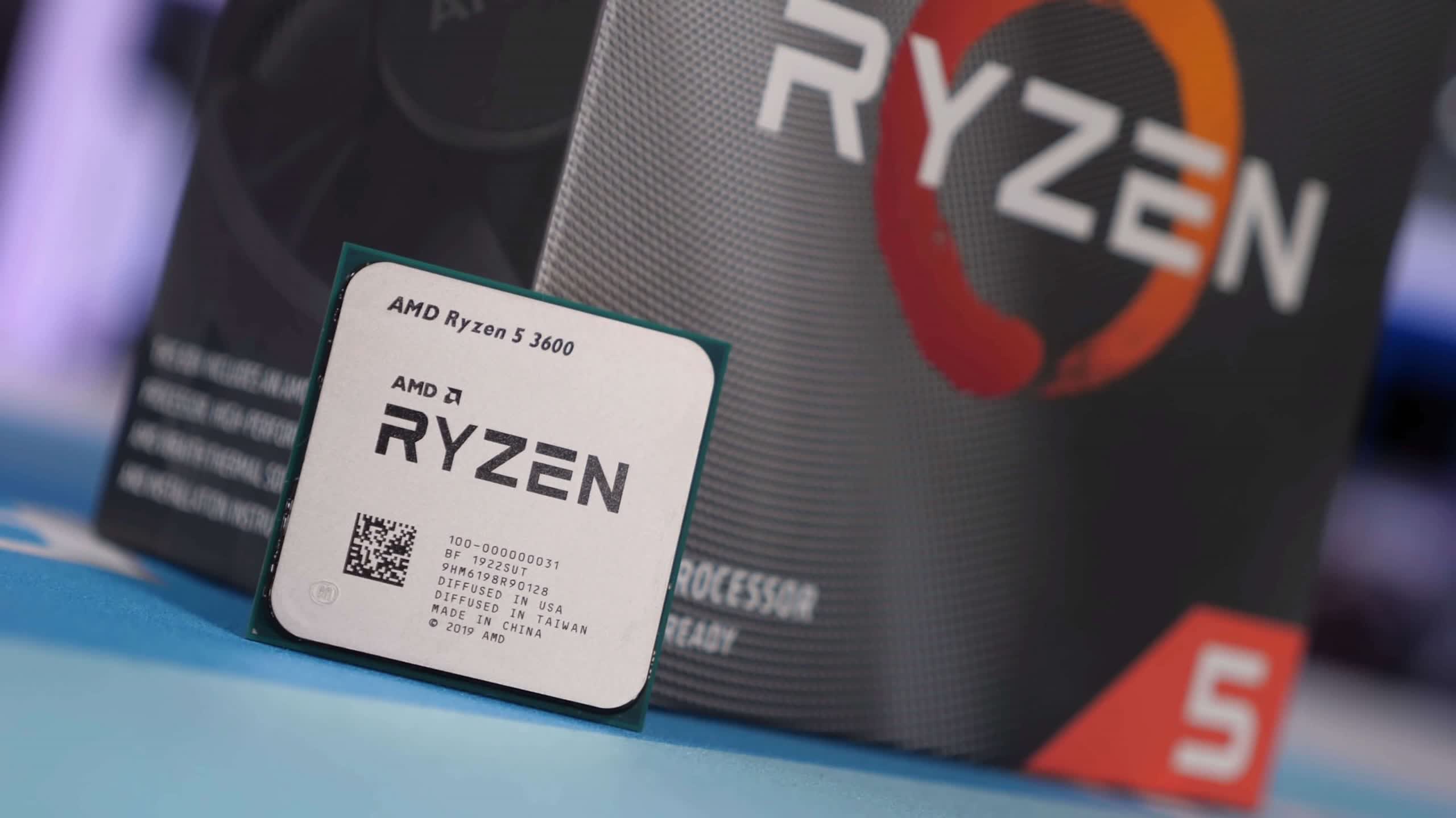Today we're taking a look back at AMD's value king, the Ryzen 5 3600, but this time with the GeForce RTX 3080. We've already seen how this Ampere flagship GPU performs using a Ryzen 9 3950X or Core i9-10900K, and surely they come close at 1440p, but those CPUs cost in excess of $500.
Though arguably CPU pricing should be a non-issue when entertaining the idea of spending $700 on a graphics card, maybe it's not such a far-fetched scenario. After all, if you can save $300+ on the CPU, that's $300 or so you can spend on a faster graphics card. Or alternatively, if you already own an R5 3600, you're no doubt interested in how it handles the RTX 3080.
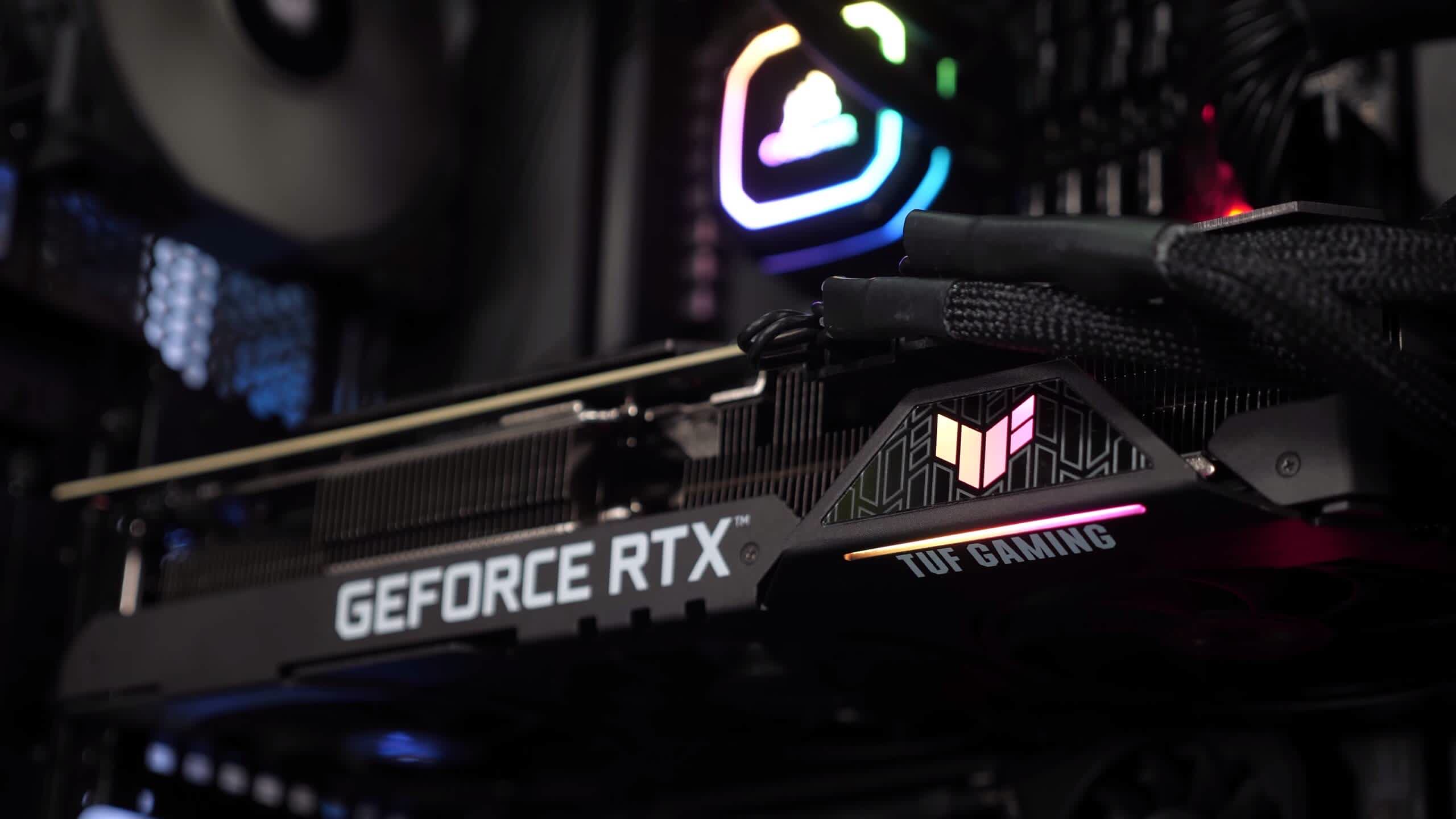
In this article, we'll look at performance in 15 games running at 1080p, 1440p and 4K with the Ryzen 5 3600 in a stock configuration using 32GB of DDR4-3200 CL14 memory. Also we'll overclock the CPU, running at 4.4 GHz and then adding a manually-tuned memory 4.4 GHz configuration as well, though keeping the DDR4-3200 memory as we've found this works quite well.
You could shoot higher with DDR4-3800 memory, but there's no guarantee it will be stable with a 1900 MHz FCLK. Anyway, the point is to give you a rough idea of what's possible, as always overclocking mileage will vary depending on motherboard, memory and CPU quality.
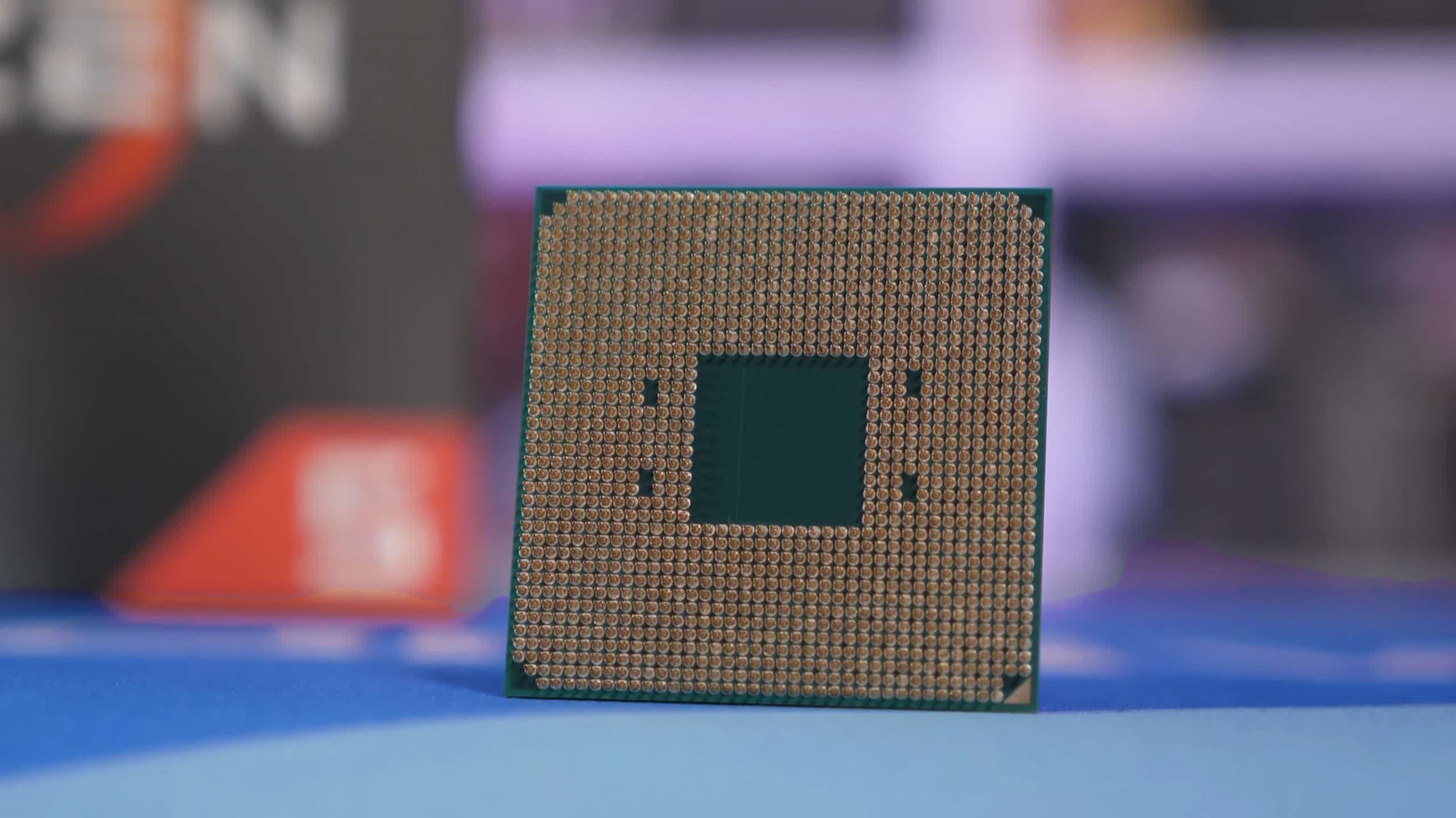
Do note the Ryzen 9 3950X and Core i9-10900K have been included in the graphs as a reference point only and have not been overclocked. This isn't a CPU vs. CPU type of content, rather we're want to see how close the Ryzen 5 3600 can get to delivering $500+ CPU performance in games.With that, let's jump into the benchmark graphs...
Benchmarks
Death Stranding isn't a great title for 3rd-gen Ryzen processors, performance isn't terrible, but we did find that the 3950X was well down on the 10900K at 1080p, and 7% slower at 1440p. Admittedly the 1440p margin was small, but we're seeing an even bigger drop off with the 6-core Ryzen processor.
The 3600 was 13% slower than the 3950X and 18% slower than the 10900K, so that's a wide enough margin despite the fact that we're still seeing ~140 fps on average.

Overclocking the 3600 didn't help, nor did manually tuning the memory timings, but for those interested in gaming at 4K, the difference between these processors is very small and certainly won't be noticed.
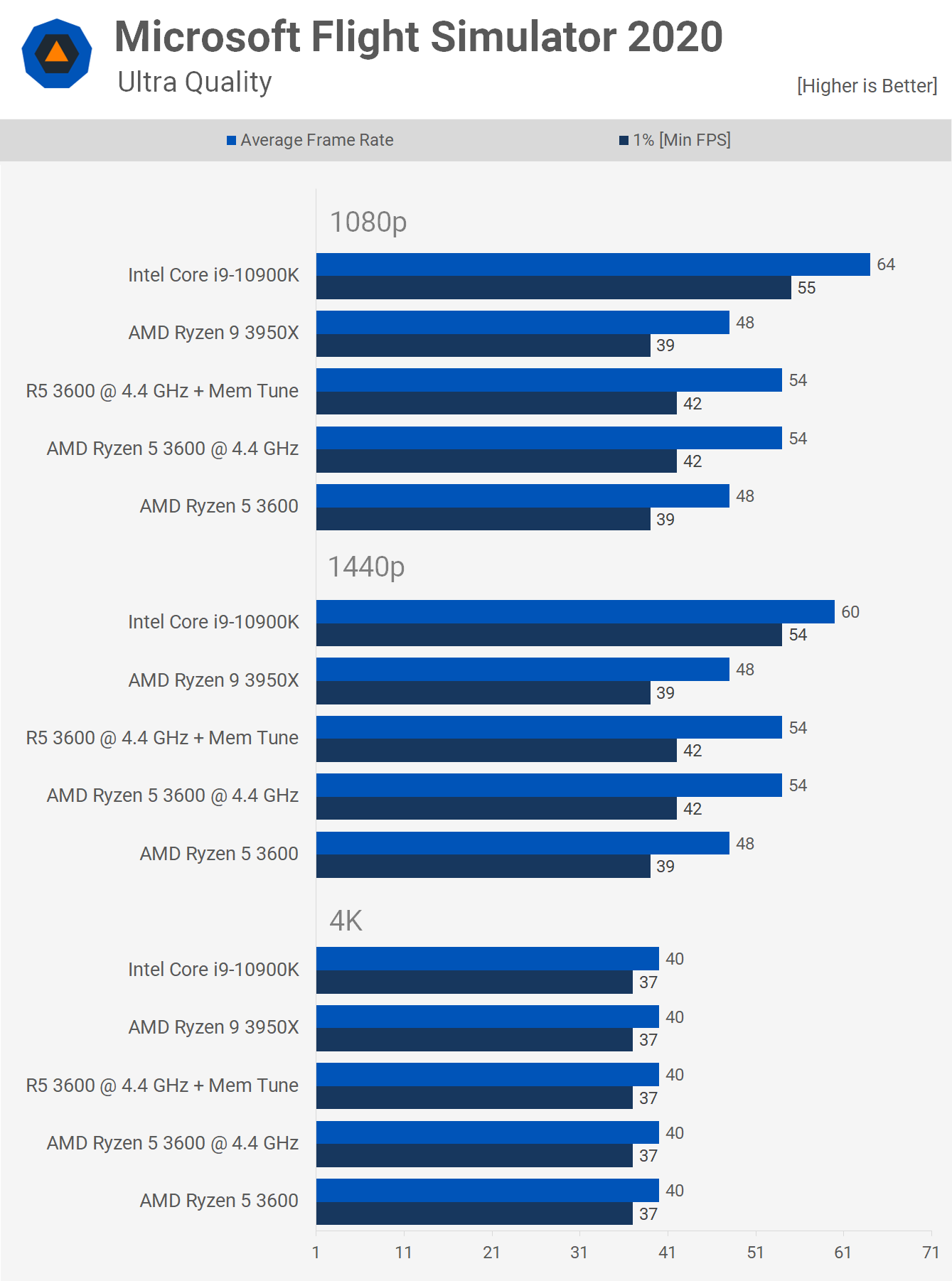
Flight Simulator 2020 is another rough title for 3rd-gen Ryzen processors. However, because it only heavily taxes a single thread, the 3950X doesn't enjoy a performance advantage when compared to the much cheaper 3600, so you're looking at identical performance.
Overclocking does help to boost performance at 1080p and 1440p by 13%, but at 4K you're looking at identical performance across the board as the game becomes primarily GPU limited.
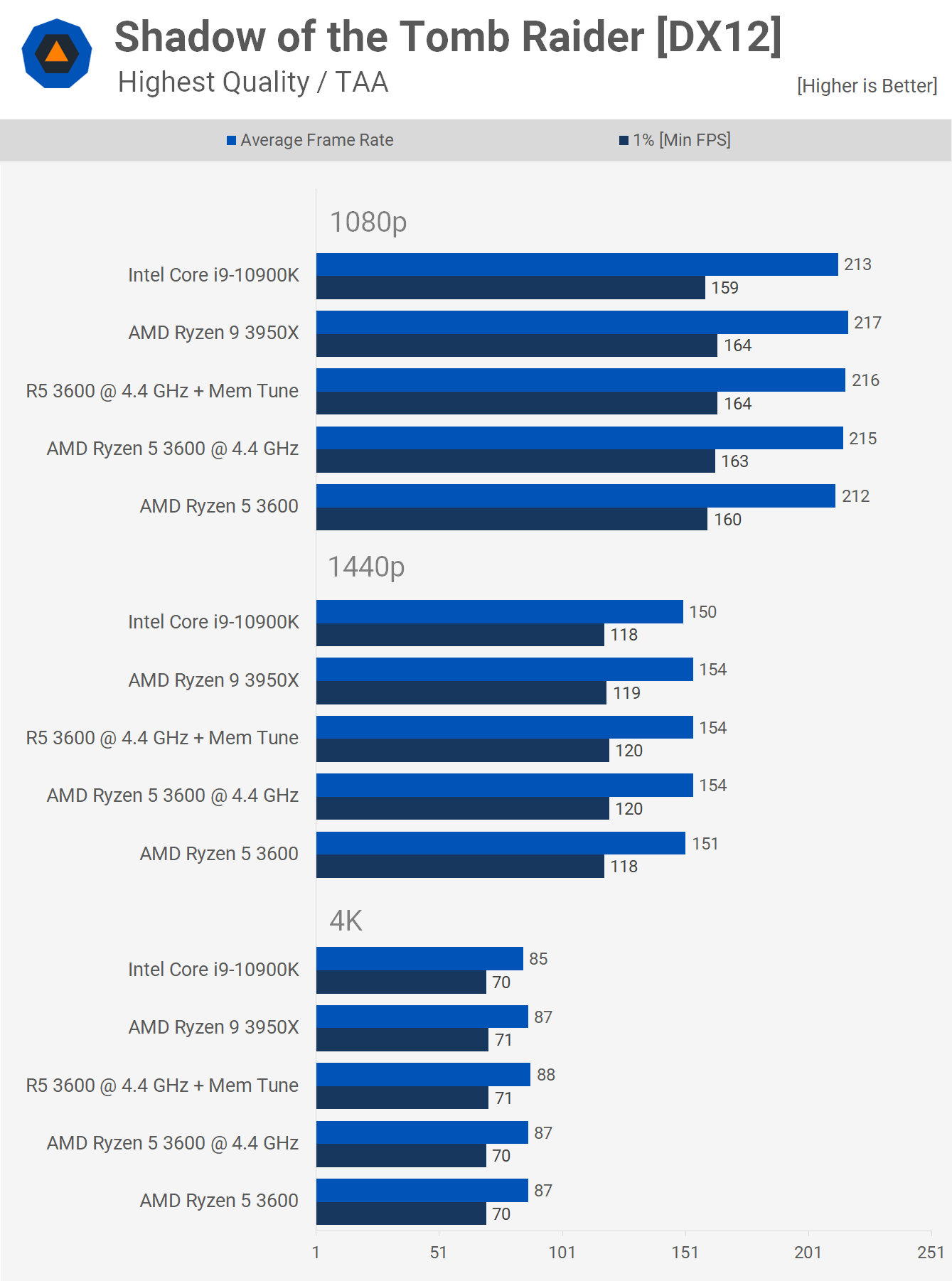
Shadow of the Tomb Raider has proven to be an excellent showcase title for Ryzen with the 3950X matching and even slightly edging ahead of the 10900K.
AMD's strong performance doesn't stem from a core count advantage though, as we see the Ryzen 5 3600 deliver the same level of performance. For this test, which was initially designed to measure GPU performance, we're using the built-in benchmark which isn't as demanding on the CPU. Still, even in our in-game testing the R5 3600 isn't a great deal slower than the 3950X.
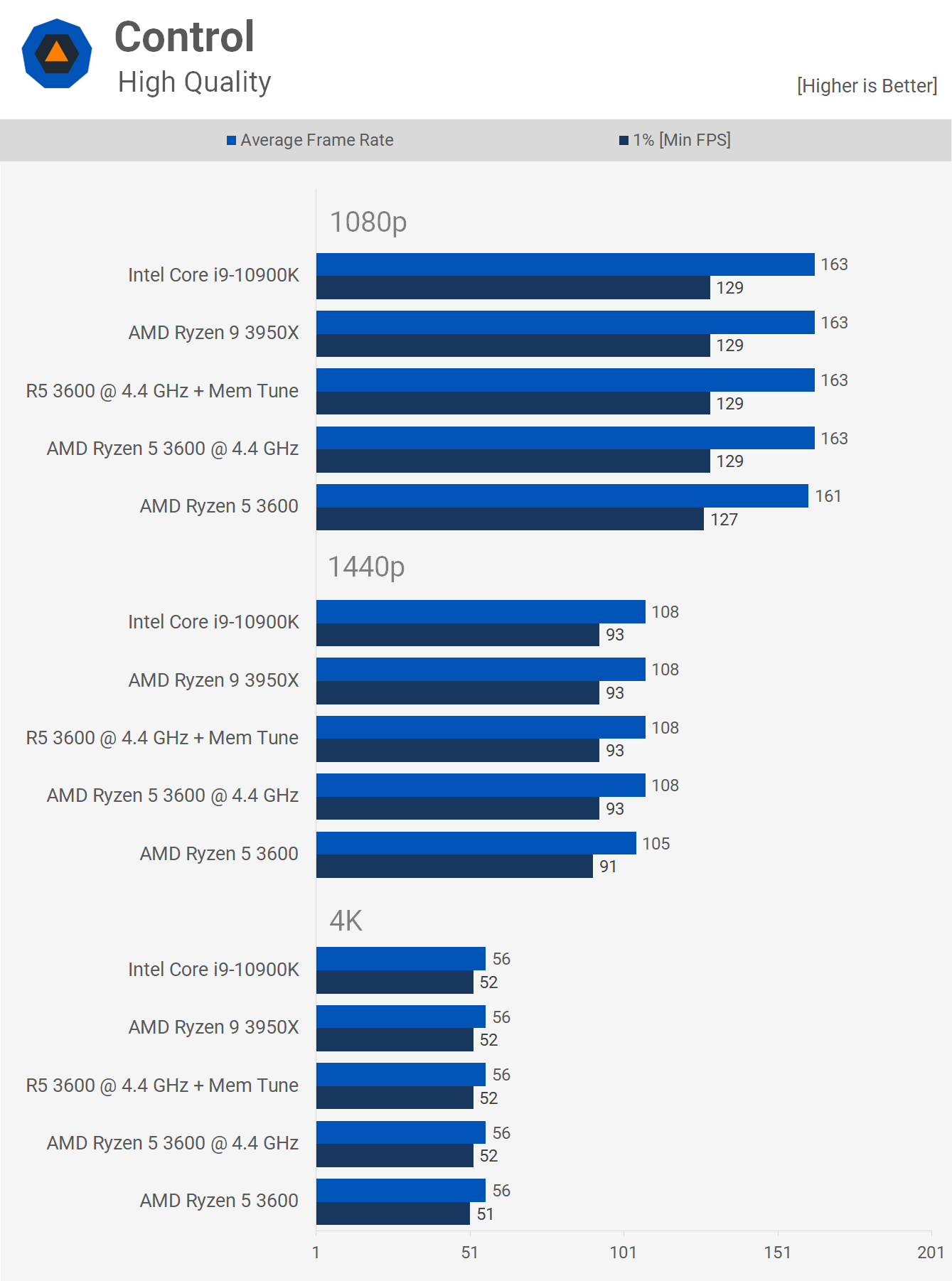
Control is always limited by GPU performance, as a result we're seeing little to no difference between the CPUs tested, even at 1080p. You're likely to see a similar level of performance in Control with a 7th-gen dual-core processor from Intel.

The Ryzen 5 3600 trails by a small margin at 1080p in Rainbow Six Siege, though we are talking about frame rates up around 400 fps. At 1440p we see no real difference in performance between any of the tested configurations and, of course, the same is also true at 4K.

Moving on to F1 2020, here we see through overclocking it's possible to get the 3600 to almost match the 3950X, though that's at least 13% slower than the 10900K. For those gaming at a more realistic resolution for the RTX 3080, we see very little difference at 1440p, stock the 3600 was just 6% slower than the 10900K and again by the time we reach 4K there is virtually no difference between any of the configurations tested.

Gears 5 is one of the worst titles for the Ryzen 9 3950X in our test suite as here the 10900K is much faster at 1080p and 1440p. The Ryzen 5 3600 doesn't fare much worse than the 3950X and can be tuned up to match its stock performance. Once we hit 4K we're seeing comparable performance with even the 109000K, so for those wanting to target higher resolutions, the 3600 is much less of an issue here.

As seen previously in our 3950X vs. 10900K benchmark feature, Metro Exodus like Gears 5 is a worst case scenario for 3rd-gen Ryzen. There is no denying that the Intel processor is worlds faster at 1080p and 1440p, that's just an unfortunate reality for AMD's Zen 2 based Ryzen processors. Performance from the Ryzen 5 3600 is still solid at the lower resolutions, but you're not getting anywhere near the most out of the RTX 3080. So it's not until we hit 4K that the game becomes predominantly GPU bound.
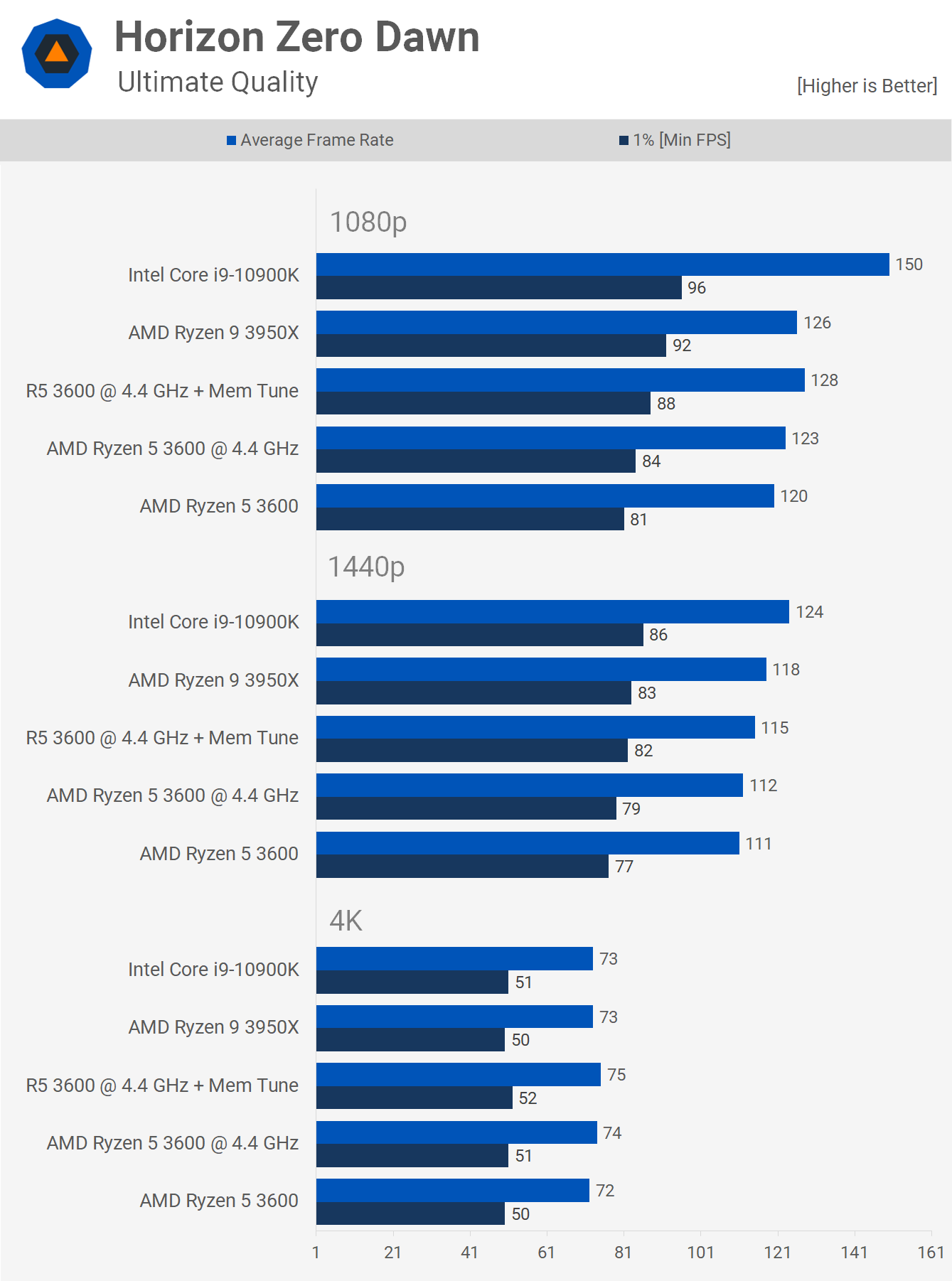
The R5 3600 performs very well in Horizon Zero Dawn, at least when looking at 1440p and above. We see that stock, it was just 10% slower than the 10900K at 1440p while it matched it at 4K. So a solid result overall.

Performance is comparable in Assassin's Creed Odyssey and here the R5 3600 can be tuned up to deliver stock 10900K-like performance, so that's impressive. A lot of games are going to be more GPU limited than CPU limited with the 3600/RTX 3080 combo, so this is a good example of what you can typically expect to see.
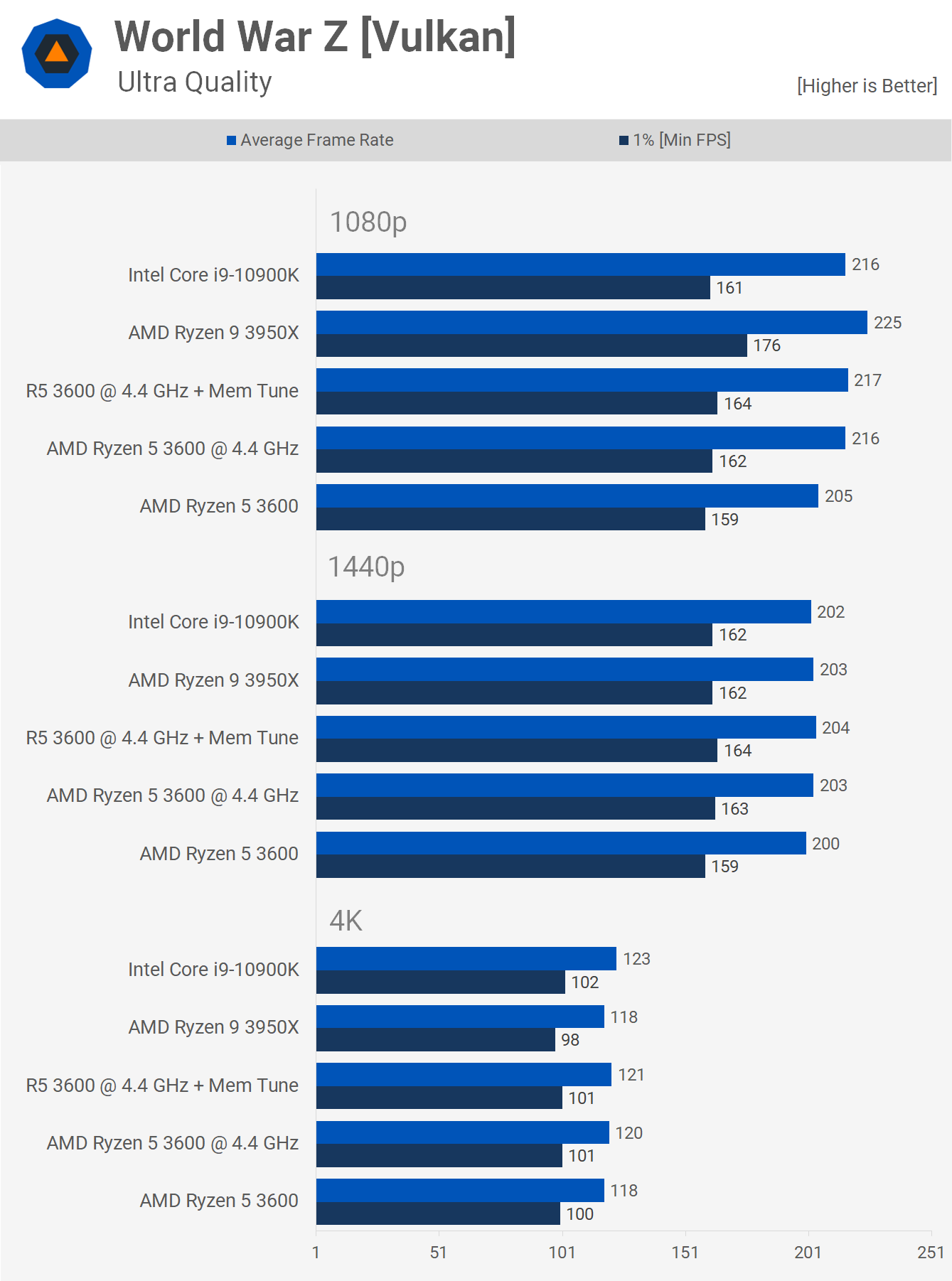
We're seeing performance that's mostly GPU bound in World War Z as the 3600 matched the much more expensive processors at 4K and 1440p while it was also comparable at 1080p.
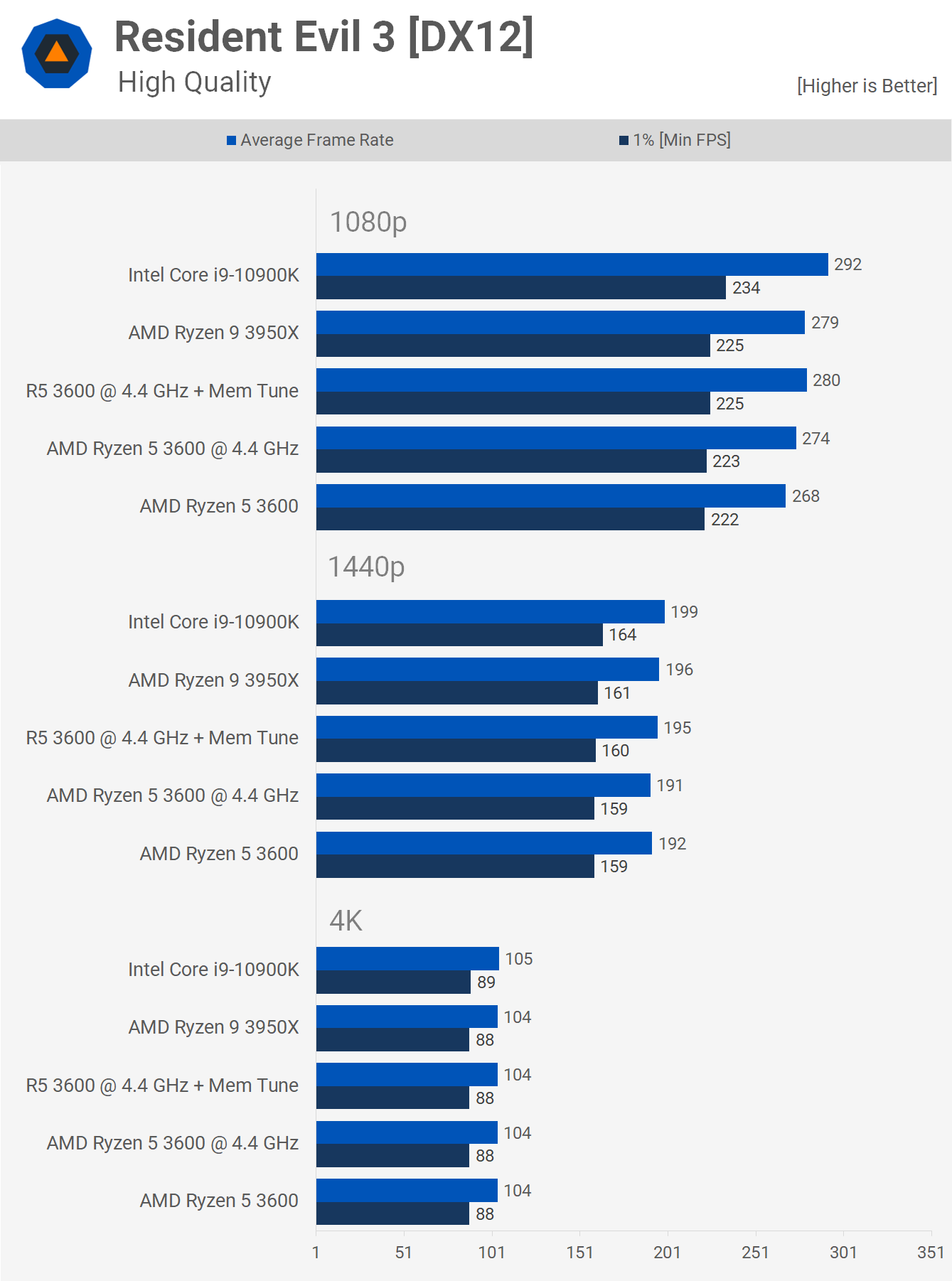
Resident Evil 3 is another game that isn't particularly sensitive to CPU performance, assuming you have a half decent CPU. Here we're seeing the Ryzen 5 3600 trailing the 10900K by just an 8% margin at 1080p with that margin closing to just shy of 4% at 1440p and then no difference is seen at 4K.
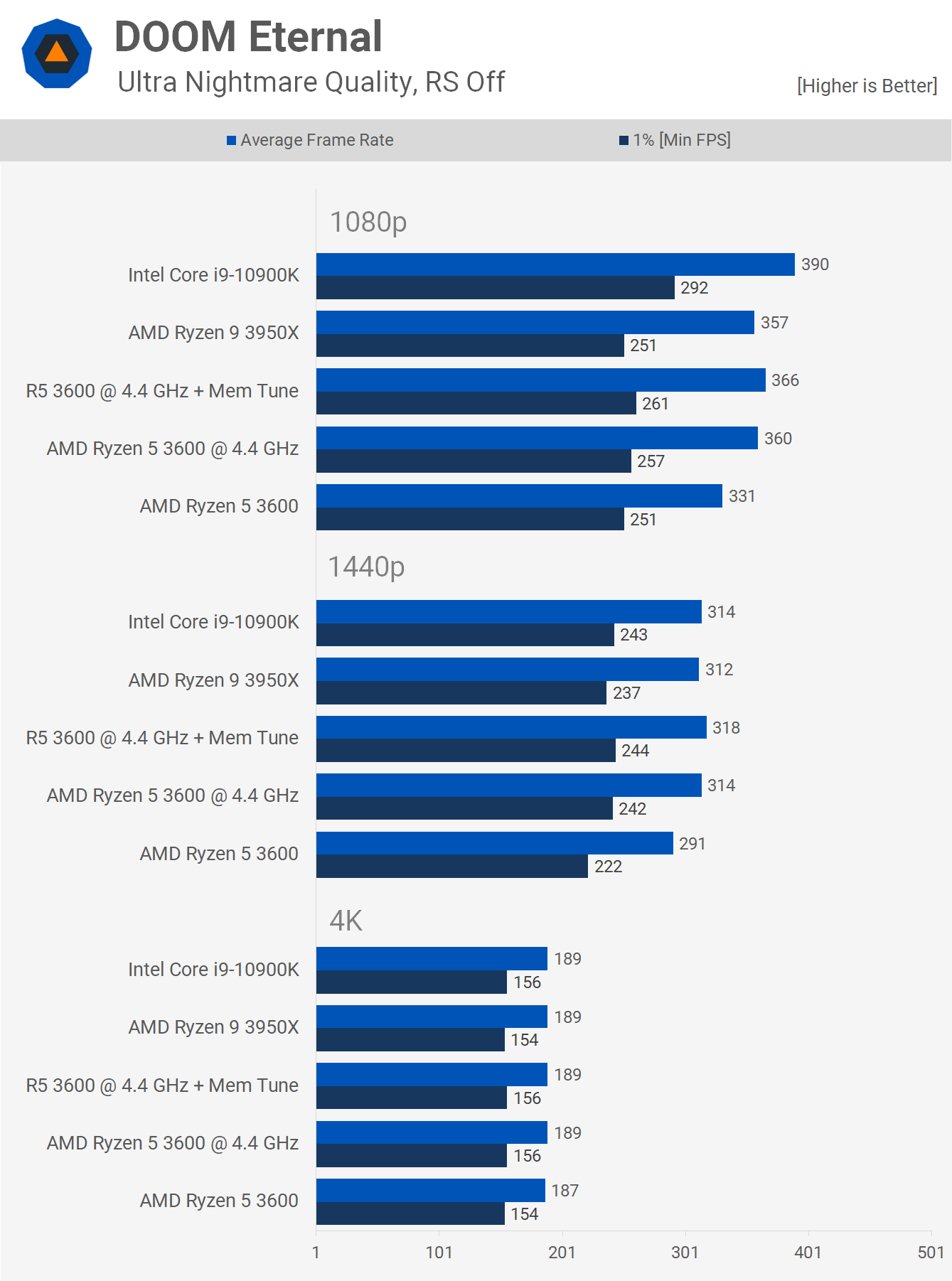
Doom Eternal is yet another game where CPU performance isn't all that important, again assuming you have a relatively modern CPU with at least 8 threads. The Ryzen 5 3600 was ~7% slower than the 10900K and 3950X at 1440p, but it was possible to maximize the performance of the RTX 3080 with a basic overclock and for those gaming at 4K, no overclock is required to get the most out of the 3080.
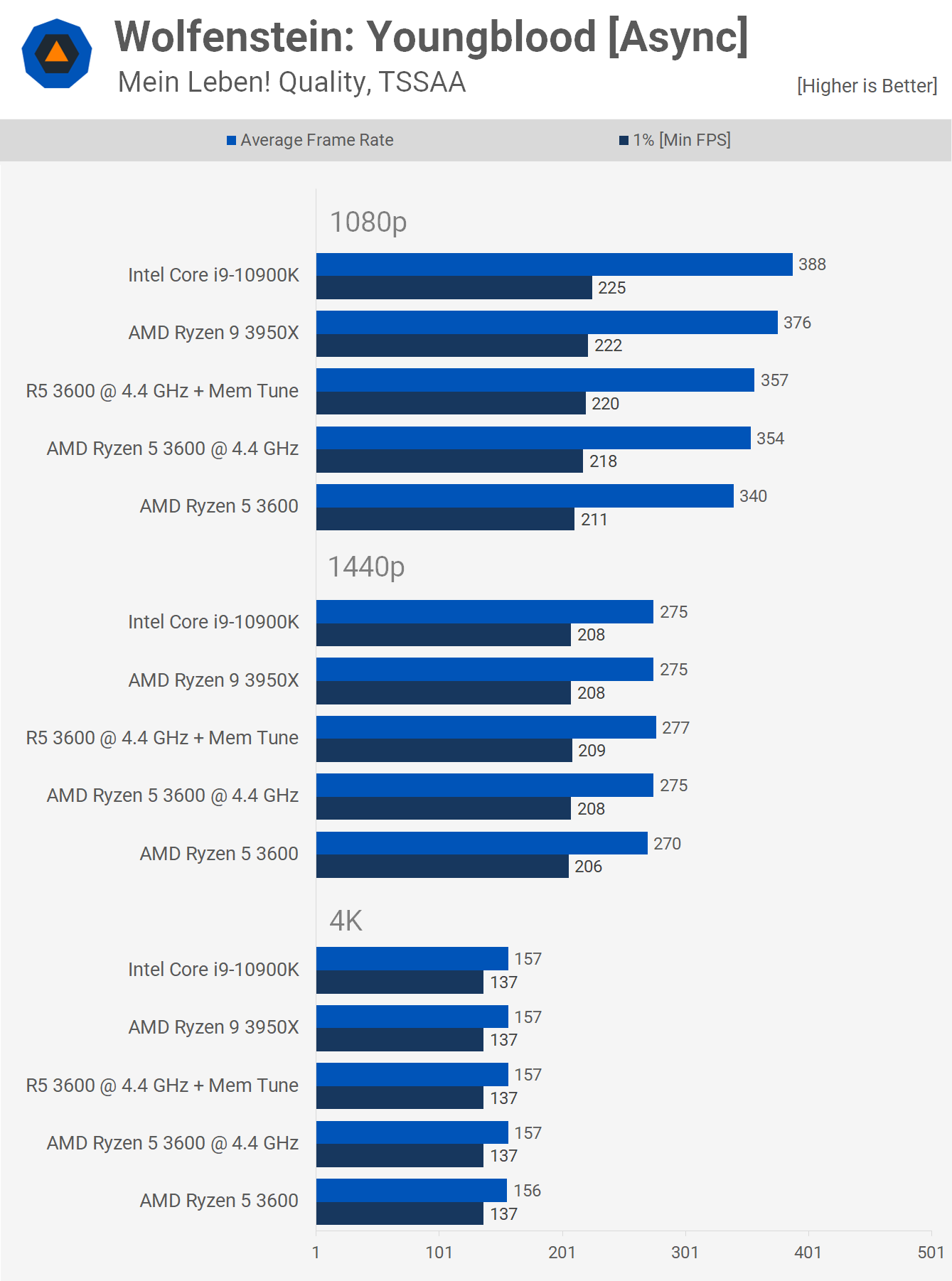
It's a similar story when testing with Wolfenstein: Youngblood. Here the stock 3600 was 12% slower than the 10900K at 1080p, but we see that margin erode entirely at 1440p and 4K.
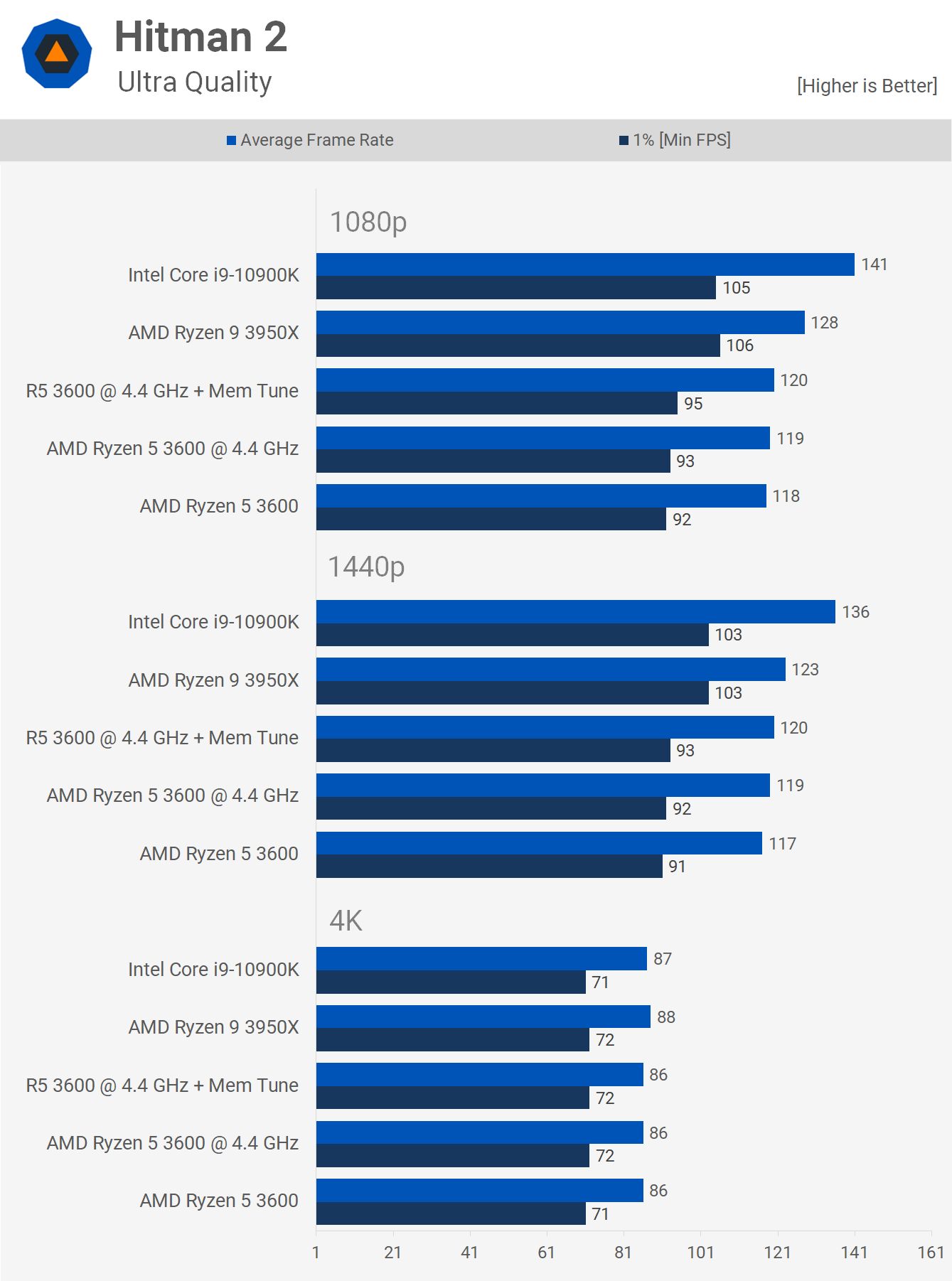
Last up we have Hitman 2 which is one of those titles like Gears 5 and Metro Exodus that don't run that well on Ryzen processors. Worse still we're seeing a large difference between the 3950X and 3600 that can't be made up for through overclocking or tuned memory which is interesting.
Performance at 1440p isn't great relative to the 10900K, though it remains highly playable, but we're not getting most out of the RTX 3080. By the time we reach 4K there's no performance difference between any of the CPUs tested.
Performance Summary
Overall it looks like the Ryzen 5 3600 has fared well, often not leaving a great deal of performance on the table at 1440p and nothing at 4K. The 1080p data we feel is more for science than it is practical use case, but obviously for those seeking maximum performance at 1080p, an Intel processor is the way to go, at least for now. Let's take a look at the average fps data cross the 15 game sample...
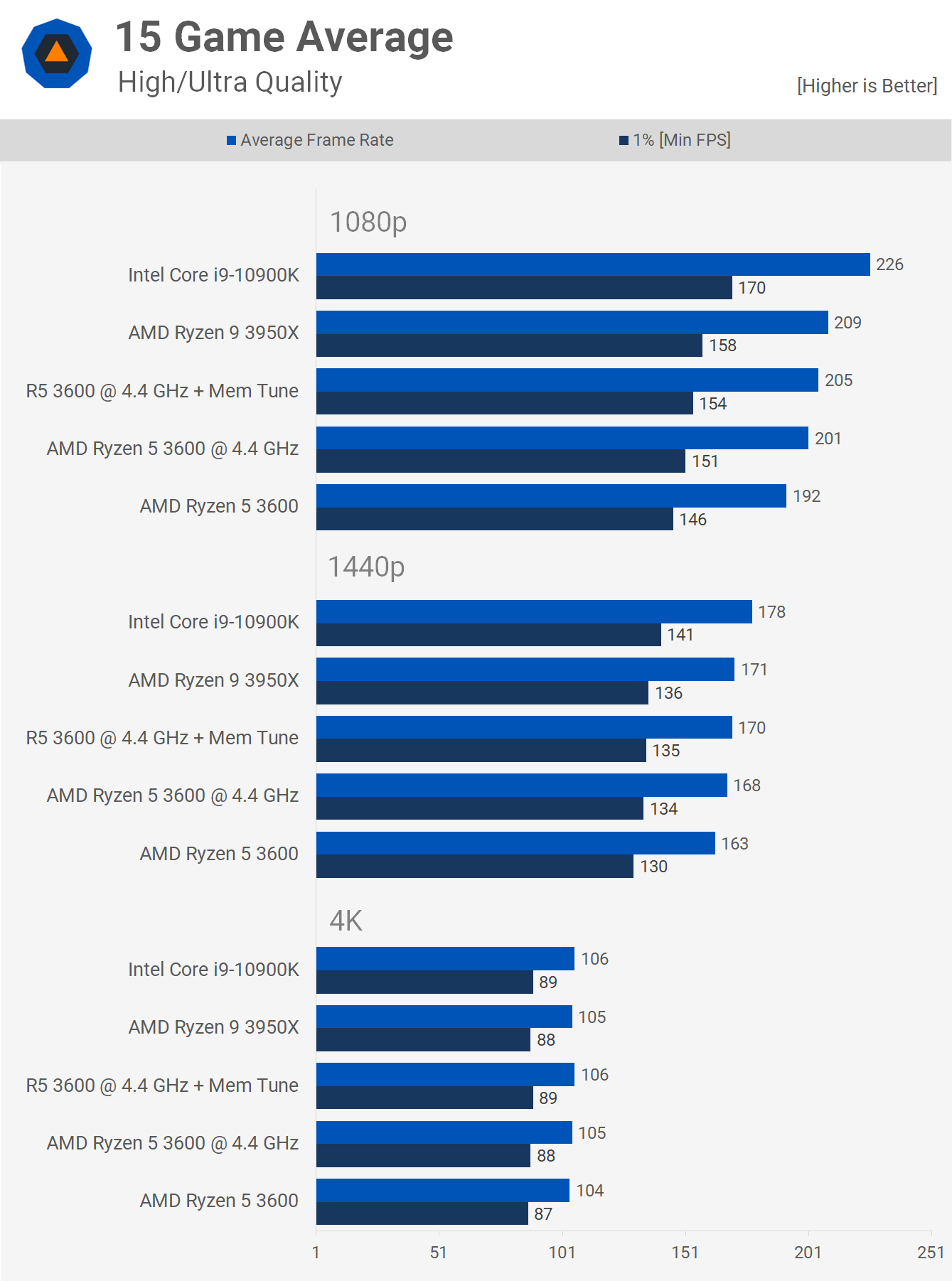
Starting with the 1080p data, we see that stock the R5 3600 was on average 15% slower than the 10900K and frankly given the price that's a good result for AMD's budget 6-core offering. It's also important to note that the 3600 delivered smooth, perfectly playable performance in all of these games. Those willing to overclock the 3600 can reduce that margin to 9%. Of course, you can overclock the 10900K as well, but that's not the point here.
As expected, the margin shrinks considerably at 1440p and now the R5 3600 was on average 8% slower than the 10900K and here we're approaching the point where in the vast majority of games you won't be able to tell the difference between these two CPUs with an RTX 3080. Moreover, overclocking the 3600 reduced the margin to just 4%.
Then finally, if you're targeting ultrawide resolutions or 4K, the CPU won't really matter as we saw very few examples where the 3600 was more than 1-2 fps slower than the 10900K.
What We Learned
Today's results will give you a clear understanding as to why we've regarded the Ryzen 5 3600 as the best value CPU on the market since launch. With 6 cores and 12 threads, it has enough resources to power through the latest and most demanding PC games for just $200. For the price, it simply outclasses everything else in that segment, not to mention, for a good portion of its life you could snag one for $175, with prices dropping as low as $160 at one point.
We had seen before that the R5 3600 comes close to getting the most out of the RTX 2080 Ti at 1440p without any manual tuning, so the RTX 3080 results weren't terribly surprising, but it was nice to confirm our suspicions with some actual testing.

It's kind of interesting to think that if you have around $1,000 to spend on an upgrade, you could get an R5 3600 with a B550 motherboard and an RTX 3080 for about that amount, assuming you could find an RTX 3080 on sale. This combo would see you maximizing the performance of the RTX 3080 at 1440p and above, whereas alternatively if you wanted that extra bit of performance, the next best value choice would be the Core i5-10600K, overclocked for maximum performance.
Once you factor in a decent Z490 motherboard and a cooler to support the overclock, you're looking at having to spend around $300 more. Not insane, but the Intel upgrade option would end up costing ~30% more, and you won't see those kinds of gains with few exceptions.

Having said all of that, the Ryzen 5 3600 is a better pairing for a graphics card costing $500 or less. Perhaps the Ryzen 5 CPU will be better accompanied by a GeForce RTX 3070, though we're expecting those margins to be similar to what was seen with the RTX 2080 Ti.
